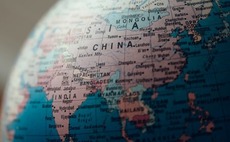
A tale of two markets
“The IPO market around the world is inherently a cyclical entity and it is unwise and unrealistic to expect it to always be open,” H. Chin Chou, CEO of Morgan Stanley PE Asia, told an AVCJ webinar last year. “At some point the market will come back and you can take a company public, but until then you have to be comfortable holding that investment for the duration.”
When the IPO window does open, the question on everyone's lips is always how long will it remain open for. Australia and China both carry the weight of expectation, and it could be argued that each market is now wavering.
Australia saw nine private equity-backed offerings raise $2.5 billion between them in 2013, a record high coming off the back of a five-year drought, and the expectation was that the euphoria would continue well into 2014. However, the market has been hit by a spate of withdrawals as sentiment appears to sour.
China is harder to gauge. The mainland markets remain a challenge due to the backlog of offerings that accumulated when the authorities barred new listings, but at least there is traction with more than 30 PE-backed IPOs so far this year.
Hong Kong is patchy, with some offerings failing to price near the top of the range. The US, meanwhile, is dogged by uncertainty as to whether the Big Four's local units can audit Chinese companies listing on American bourses. This hasn't stopped some IPOs, but activity is more muted than at the end of last year.
If we were to pick one word that captures the dynamic in both Australia and China it would be "selective" - investors and regulators are more scrutinizing, there are no more free rides.
Returning to the original quote, a second question is whether investors are comfortable holding on to portfolio companies longer than planned due to volatility in the IPO markets.
In buyout-led Australia the answer is clearly yes because there are other exit options. Despite the strong year for IPOs in 2013, more trade sales (34) generated more proceeds ($3.9 billion).
PE firms in China have historically been heavily dependent on IPOs for exits because they tend to be minority investors. Having said that, trade sales generated proceeds of $7.3 billion in 2013, a record high.
The increasingly acquisitive Chinese tech giants obviously played a role in this. But beyond the reach of AVCJ Research - or any other data gatherer - it is likely many more assets changed hands, driven by a combination of fatigued investors and entrepreneurs that face increasing commercial challenges.
Much like the gradual rise in PE control deals in China, which can be driven by guided by similar factors, it is a quiet trend worth watching.
Latest News
Asian GPs slow implementation of ESG policies - survey
Asia-based private equity firms are assigning more dedicated resources to environment, social, and governance (ESG) programmes, but policy changes have slowed in the past 12 months, in part due to concerns raised internally and by LPs, according to a...
Singapore fintech start-up LXA gets $10m seed round
New Enterprise Associates (NEA) has led a USD 10m seed round for Singapore’s LXA, a financial technology start-up launched by a former Asia senior executive at The Blackstone Group.
India's InCred announces $60m round, claims unicorn status
Indian non-bank lender InCred Financial Services said it has received INR 5bn (USD 60m) at a valuation of at least USD 1bn from unnamed investors including “a global private equity fund.”
Insight leads $50m round for Australia's Roller
Insight Partners has led a USD 50m round for Australia’s Roller, a venue management software provider specializing in family fun parks.






